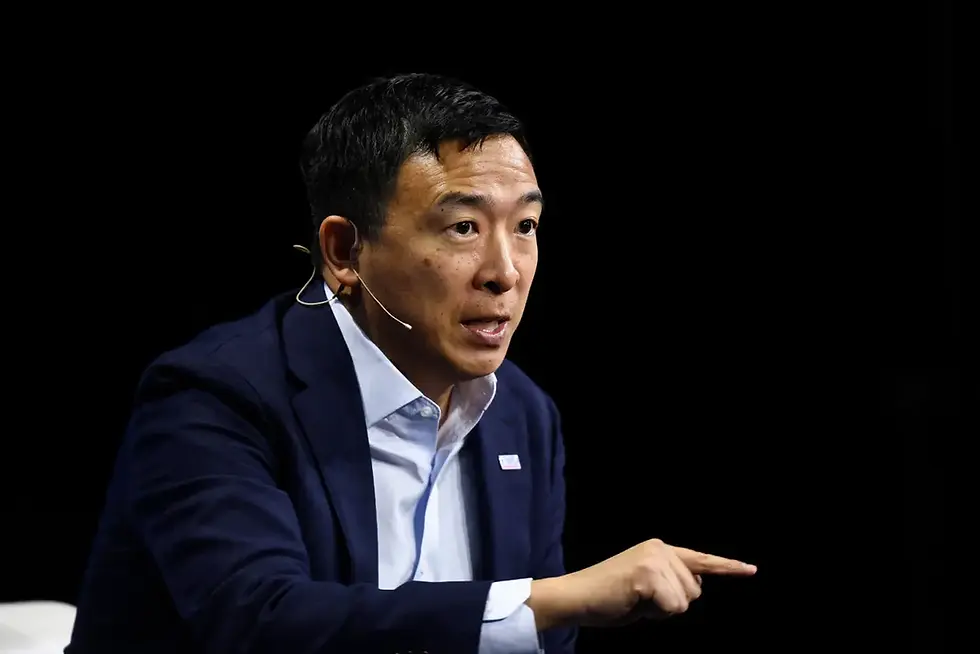Nvidia Chips, AI Talent, and $15.2B Investment: Microsoft’s Bold Move in the UAE
- Lindsay Grace

- Nov 6, 2025
- 5 min read

The global technology landscape is entering a pivotal phase as artificial intelligence (AI) and high-performance computing reshape enterprise strategy, national security considerations, and international trade dynamics. Microsoft’s announcement of a $15.2 billion investment in the United Arab Emirates (UAE) over the next four years is emblematic of this transformation, highlighting how AI is no longer just a technological endeavor but a strategic asset with economic, geopolitical, and operational ramifications. This article provides an in-depth expert-level analysis of Microsoft’s UAE initiative, examining the technological, economic, and strategic dimensions of this unprecedented investment.
AI and Cloud Infrastructure: Scaling for the Next Generation of Workloads
Modern AI workloads, particularly those involving large language models (LLMs), multimodal systems, and agentic AI, demand enormous computational resources. Training and inference cycles for these models consume petaflops of processing power and terabytes of memory bandwidth, which necessitates specialized GPU infrastructure. Microsoft’s Azure platform, a cornerstone of enterprise and consumer AI services, faces mounting pressure to maintain:
Low-latency performance for real-time applications
High-throughput computation for generative AI tasks
Reliability and scalability across global operations
By investing heavily in the UAE, Microsoft secures both geographic diversification and access to state-of-the-art hardware, ensuring Azure can meet the demands of next-generation AI workloads while establishing a regional operational hub in the Middle East.
Overview of Microsoft’s UAE Investment
The $15.2 billion investment in the UAE is structured across multiple phases and spans AI, cloud infrastructure, talent development, and governance initiatives:
Previous Investment (2023–2025): $7.3 billion, including a $1.5 billion equity stake in G42, the UAE’s sovereign AI company, and $4.6 billion allocated to AI and cloud data centers.
Future Investment (2026–2029): $7.9 billion, with $5.5 billion dedicated to ongoing and planned expansion of AI and cloud infrastructure, and the remainder targeting workforce training, operational costs, and governance frameworks.
GPU Deployment: Microsoft is shipping a combination of Nvidia A100, H100, H200, and the advanced GB300 GPUs, totaling the equivalent of 21,500 units initially, with updated licenses allowing for 60,400 additional A100-equivalent chips.
Brad Smith, Microsoft Vice Chairman and President, emphasized the dual objectives of this investment: “This is not money raised in the UAE. It’s money we’re spending in the UAE. And as we do everywhere in the world, we’re focused not just on growing our business but also on contributing to the local economy.”
Technological Foundations and Strategic Hardware Deployment
The cornerstone of Microsoft’s UAE AI initiative is the integration of cutting-edge Nvidia GPUs, optimized for intensive AI workloads. Key capabilities include:
High-bandwidth memory and tensor core acceleration enabling rapid model training
Multimodal processing for AI systems capable of analyzing text, image, and audio streams
Scalability for hybrid and containerized cloud deployments
Support for agentic AI, allowing autonomous reasoning and decision-making
The physical deployment leverages the UAE’s strategic infrastructure advantages, including data center campuses built in partnership with G42 and advanced cooling systems capable of supporting high-density GPU clusters. This design ensures operational efficiency, energy optimization, and resilience against system failures.
Hardware Component | Purpose | Deployment Context |
Nvidia A100/H100/H200 GPUs | AI training & inference | Data centers across Abu Dhabi & UAE campuses |
Nvidia GB300 GPUs | Advanced reasoning models & multimodal AI | High-performance cluster deployments |
Data center cooling & power infrastructure | Thermal management & energy efficiency | On-site facility integration with renewable support |
Economic and Market Implications
Microsoft’s UAE investment underscores the intersection of technology, finance, and geopolitics:
Regional AI Leadership: The UAE becomes a hub for AI research and model development, supporting local talent and positioning the country as a center for Middle Eastern technological influence.
Stock Market Effects: Nvidia shares rose 2.6% following the announcement, reflecting market anticipation of expanded access to AI-capable GPUs and the growth potential in regional cloud services.
Revenue and Talent Multipliers: The investment includes workforce training programs, targeting one million residents by 2027, generating both immediate employment opportunities and long-term knowledge capital.
The initiative also represents a strategic test case for U.S. AI diplomacy, with Microsoft being the first company to secure export licenses from the U.S. Commerce Department to ship advanced Nvidia chips to the UAE, balancing cybersecurity and national security considerations with commercial expansion.
Repurposing Cryptocurrency and AI Infrastructure Trends
Microsoft’s approach mirrors broader industry trends in the repurposing of high-density computational infrastructure for AI:
Crypto-to-AI Transition: Bitcoin mining facilities, with their extensive GPU racks and cooling systems, provide an adaptable platform for AI workloads.
Rapid Capacity Scaling: Leveraging existing infrastructure accelerates deployment without the lead time required for new data center construction.
Cost Optimization: Utilizing pre-existing power, cooling, and hardware infrastructure reduces operational expenses while maintaining scalability.
These trends reflect a growing convergence of finance, AI, and high-performance computing, with hyperscale cloud providers seeking partnerships with infrastructure specialists to rapidly scale AI offerings globally.
Operational and Governance Considerations
Large-scale AI deployments in the UAE require careful operational planning:
Thermal Management: High-density GPUs generate heat requiring air and liquid cooling systems to maintain efficiency.
Energy Efficiency: Integration of renewables and smart grid management minimizes environmental impact.
Low-Latency Networking: Optimized network topologies ensure real-time inference capabilities across distributed systems.
Cybersecurity & Compliance: Microsoft established a Responsible AI Future Foundation and a first-of-its-kind intergovernmental assurance framework to align operations with U.S. cybersecurity and data protection standards.
By addressing these operational dimensions, Microsoft ensures resilient, sustainable, and compliant cloud infrastructure capable of supporting regional and global AI workloads.
Geopolitical and Strategic Significance
The UAE investment carries broader implications beyond technology and finance:
U.S. Influence in AI: By securing export licenses for advanced Nvidia GPUs, Microsoft reinforces U.S. AI leadership while fostering regional alliances.
Middle East as AI Proving Ground: The UAE serves as a strategic hub for testing AI infrastructure, workforce development, and governance frameworks in a region with high economic and technological growth potential.
Export Control Diplomacy: The deal tests the balance between controlling AI-critical hardware exports and enabling global commercial competitiveness, especially in geopolitically sensitive regions.
Experts note that such initiatives may serve as models for AI-enabled international collaboration, blending commercial ambition with strategic diplomacy.
Future Outlook and Emerging Trends
Looking ahead, several trends are expected to shape AI and cloud infrastructure expansion:
Agentic AI Scaling: Autonomous reasoning and decision-making systems will drive demand for highly optimized GPU clusters.
Regional Diversification: Providers will source AI capacity from multiple regions to mitigate latency, political risk, and regulatory challenges.
Sustainability Integration: Energy-efficient cooling, renewable energy adoption, and AI-optimized power distribution will become standard practice.
Talent Development as Strategic Asset: Large-scale workforce training ensures regional expertise and long-term operational sustainability.
By integrating these trends, Microsoft and other hyperscale providers can secure technological leadership, operational resilience, and market competitiveness.
Expert Commentary
Rebecca Lin, a cloud infrastructure strategist, states, “Microsoft’s UAE investment demonstrates that AI infrastructure planning is no longer solely about technology. It is equally about geopolitics, talent, and compliance. Strategic partnerships and local engagement will define the leaders of next-generation AI.”
Dr. Alan Summers, senior analyst in AI infrastructure, adds, “This initiative exemplifies the emerging model for hyperscale cloud deployments. Combining GPU innovation, regional hubs, and robust governance frameworks enables a scalable, secure, and sustainable AI ecosystem.”
Conclusion
Microsoft’s $15.2 billion UAE AI and cloud investment highlights the convergence of technology, economics, and international strategy in the AI era. By leveraging cutting-edge Nvidia GPUs, developing local talent, and establishing governance frameworks, Microsoft positions both Azure and the UAE as leaders in AI deployment, research, and innovation. The initiative exemplifies a broader shift toward strategic partnerships, regional diversification, and sustainable AI infrastructure—trends that will shape the global technology landscape for years to come.
This investment not only strengthens Microsoft’s competitive positioning but also reflects the growing interdependence of technology, policy, and international collaboration, emphasizing the critical role of infrastructure, talent, and trust in shaping the future of AI.
For deeper insights and ongoing analysis on AI infrastructure, cloud expansion, and strategic investments, follow Dr. Shahid Masood and the expert team at 1950.ai, who provide comprehensive research, data-driven insights, and industry-leading perspectives.
Further Reading / External References
Bellan, R., “Microsoft’s $15.2B UAE Investment Turns Gulf State Into Test Case for US AI Diplomacy,” TechCrunch, link
AFP, “Microsoft Announces $15.2B AI, Cloud Investment in UAE,” The Express Tribune, link
Soper, T., “Microsoft Expands UAE Investment to $15.2B With Major Nvidia GPU Shipments,” GeekWire, link




Comments